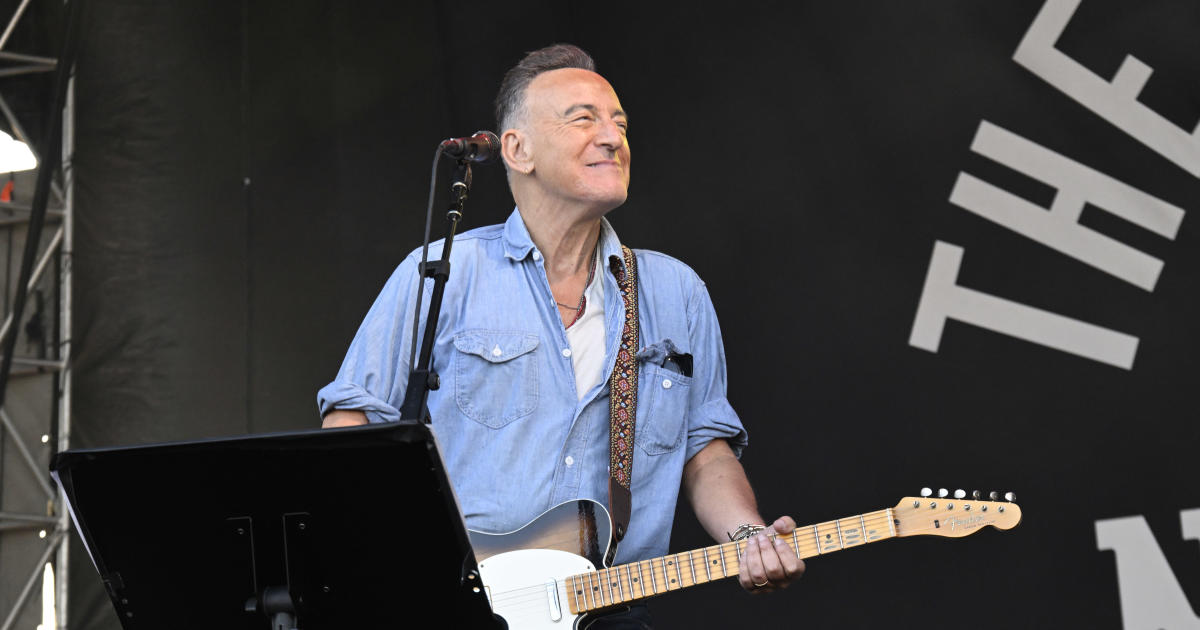Bruce Springsteen’s endorsement of Kamala Harris highlights a deeply divided political landscape, underscoring the stark contrast between the candidates’ visions for the country’s future. Springsteen’s support, while not unexpected given his long-standing criticism of Donald Trump and history of endorsing Democratic candidates, carries significant weight due to his widespread influence and resonating voice among a large segment of the population. His endorsement goes beyond a simple political act; it represents a powerful statement about the nation’s current state and the critical choice facing American voters. This endorsement underscores the urgency and gravity of the upcoming election, emphasizing the profound implications of the candidates’ contrasting approaches to governance and the very fabric of American society. The endorsement also touches on broader themes of unity, inclusion, and the preservation of democratic ideals—all critical considerations during this pivotal moment in American history.
Springsteen’s Rationale: A Vision for Inclusive America
Springsteen’s endorsement of Kamala Harris stems from his belief in her commitment to a more unified and inclusive nation. He explicitly contrasts Harris’s vision with that of Donald Trump, characterizing the latter as a threat to American democracy and values. He argues that Harris’s policies prioritize economic growth that benefits all Americans, not just the wealthy, aligning with his own long-standing advocacy for social and economic justice.
The Importance of Unity and Inclusion
Springsteen’s message powerfully emphasizes the importance of unity and inclusion in American society. He describes a nation deeply divided, suggesting a political, spiritual, and emotional rift that threatens the very foundation of the country. This sentiment directly addresses the current political climate and aims to inspire a sense of shared purpose and national unity.
Economic Equality and Opportunity
The endorsement touches upon a central economic concern – economic equality. Springsteen suggests Harris aims for economic policies that uplift all members of society, not just the affluent. This highlights the broader argument for policies addressing income inequality and ensuring fair economic opportunities for all, a message deeply resonant within Springsteen’s artistic repertoire and political stances.
A Critical Assessment of Donald Trump
A significant portion of Springsteen’s endorsement centers on his scathing criticism of Donald Trump, whom he labels “the most dangerous candidate for president in my lifetime.” He doesn’t mince words, directly criticizing Trump’s understanding of the country’s history, its meaning, and the responsibilities of the presidential office. The condemnation is sharp and unflinching.
The Threat to Democratic Institutions
Springsteen’s concerns extend beyond policy differences. He focuses on Trump’s alleged disregard for democratic norms, questioning his respect for the Constitution, democratic processes, the rule of law, and peaceful transitions of power. This reflects a deep concern about the erosion of American democratic institutions and emphasizes the long-term risks inherent in Trump’s approach to governance.
Disqualifying Behavior
The rock legend goes further, suggesting that Trump’s actions should permanently bar him from holding the office of president. This statement exemplifies the profound sense of alarm many feel about the potential consequences of a second Trump presidency and underscores the perceived existential threats to democracy.
The Impact of Celebrity Endorsements: A Broader Perspective
While Springsteen’s endorsement is significant, the broader question of celebrity endorsements’ effectiveness in political campaigns deserves consideration. The influence of celebrity endorsements is complex and nuanced, varying in impact based on multiple factors, including the celebrity’s perceived credibility, their relevance to their audience, and the specific political context.
Measuring Influence: Quantifiable and Qualitative Impacts
Taylor Swift’s endorsement of Kamala Harris provides a tangible example of a celebrity endorsement leading to a surge in voter registration website traffic. Such quantitative evidence provides a sense of scale to the potential influence of celebrity endorsements. However, assessing the true effect on voter turnout and actual voting patterns is considerably more complex, requiring detailed election data analysis.
The Two-Sided Coin of Celebrity Endorsements
Springsteen’s assertion that his opinion carries no more weight than any other citizen’s underscores the potential limitations of relying solely on celebrity endorsements to sway voters. The importance of individual voter engagement, independent fact-checking, and careful deliberation in the decision-making process are critical considerations in evaluating the true political impact of these endorsements. Celebrity endorsements may garner attention and raise awareness, yet genuine political shifts ultimately derive from well-informed public choices.
Takeaway Points
- Springsteen’s endorsement is a powerful statement about the crucial choices in the upcoming election, transcending typical political rhetoric.
- His endorsement of Harris aligns with his long-standing advocacy for social justice and inclusive governance.
- The harsh critique of Trump points to deeper concerns about the fragility of democratic institutions and the threat posed to them.
- The impact of celebrity endorsements, while potentially influential, needs to be seen within a larger context of voter engagement and independent critical thinking.









